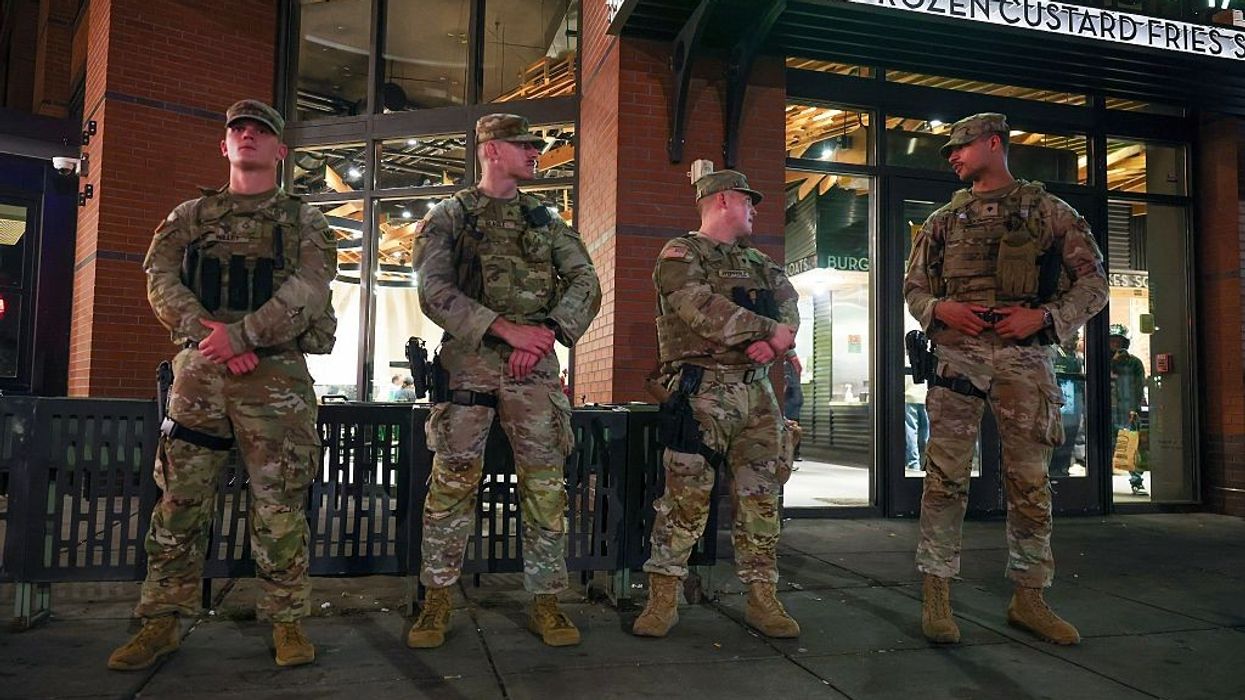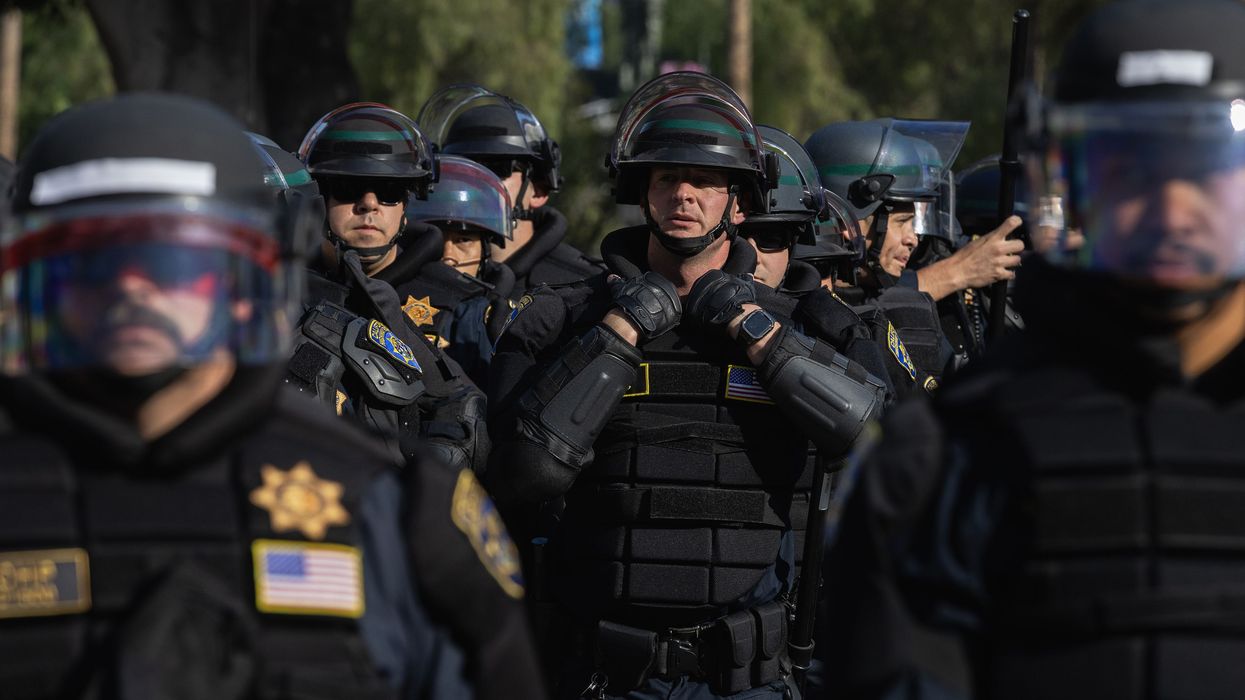The Hemispheric Presidency: Emergency Powers and the New US Doctrine in Latin America
Trump's emerging doctrine is anchored in the expansion of presidential authority, representing the full extension of the unitary executive theory or the imperial presidency into the sphere of foreign policy.
The latest round of deadly boat strikes, which killed 3 people—bringing the total death toll to at least 70 since September—are confirmation that the second Trump administration has decisively refocused US foreign policy toward Latin America and the Caribbean.
Long treated as a secondary concern, including during President Donald Trump’s first term, when attention centered on China, the Middle East, and Eastern Europe, the region has returned to the forefront of US global strategy. But what is emerging is not a revival of Cold War containment or the Monroe Doctrine. It is the consolidation of a new US doctrine, one that aims to fuse emergency powers, economic warfare, and militarization into a unified hemispheric order.
This emerging doctrine is anchored in the expansion of presidential authority. It represents the full extension of the unitary executive theory or the imperial presidency into the sphere of foreign policy, an effort to normalize executive unilateralism as the organizing principle of US governance at home and abroad. Trump’s approach reveals how emergency powers techniques, such as executive orders, emergency declarations, and budgetary discretion, are being implemented as instruments of foreign policy.
This realignment is only possible because of the profound transformations generated by the War on Drugs and the War on Terror, which over the last three decades expanded the legal and institutional capacity of the US executive branch to govern through permanent emergency. What began as exceptional counterinsurgency frameworks, asset seizures, sanctions, and military authorizations without congressional approval has evolved into the standard operating logic of the US government.
Under Trump, these tools have coalesced into a coherent hemispheric project.
Emergency powers serve as the connective tissue linking military strikes, financial bailouts, and sanctions into a coherent system of hemispheric governance.
The Trump administration’s foreign policy rests on a single assumption: that the president can act independently of Congress, international law, and long-standing diplomatic norms. This logic manifests through unilateral bailouts, economic and financial sanctions, and militarized interventions.
For instance, the Trump administration’s authorization of 17 direct boat strikes in the Caribbean illustrates how the administration treats military action as an extension of executive discretion. In a highly contested argument, the Trump administration has maintained that the president has the legal authority to carry out these attacks.
The attacks are against vessels allegedly linked to narcotics operations, though many lacked the capacity or cargo to justify the strikes. Some accounts note that the goal with these strikes is not interdiction, but provocation, using force to engineer confrontation and accelerate regime change in Venezuela.
The Caribbean, once imagined as America’s “backyard,” has become the theater where emergency powers are rehearsed as everyday statecraft.
The economic arm of this doctrine operates on the same logic. On October 17, the administration announced a $40 billion bailout for Argentine President Javier Milei, the self-styled “anarcho-capitalist” who wields a chainsaw as a symbol of his promise to “cut the state.” Half of the funds came from US public reserves and half from private investors, without congressional approval.
The measure was less about stabilizing Argentina’s economy than about underwriting a radical neoliberal experiment that mirrors Trump’s domestic agenda. Milei’s program, including privatizing pensions, slashing social services, and gutting labor protections, has been hailed in Washington as proof of “fiscal responsibility.”
But as Mother Jones revealed, hedge-fund billionaire Rob Citrone, who had recently invested heavily in Argentine debt, maintained close ties with Treasury Secretary Scott Bessent, raising questions about conflicts of interest and influence peddling.
In this context, the bailout secures a government ideologically aligned with Trumpism while reinforcing US financial dominance. More importantly, the US taxpayers’ bailout played a key role in Milei’s victory on October 26’s legislative elections, giving him a lifeline to address the economic stability exacerbated by Milei’s own policies. Thus, through the language of crisis management, the executive transforms financial rescue into a form of governance by decree.
The military dimension of this doctrine is even more telling. The Caribbean has become the primary stage for the remilitarization of US power and the enactment of presidential emergency authority abroad. In recent months, the Pentagon launched the largest regional deployment in decades.
In late October, the aircraft carrier USS Gerald R. Ford left the Croatian port of Split for the Caribbean, joined by seven other warships and dozens of fighter jets. More than 10,000 US troops are currently deployed in the area, half aboard naval vessels and half stationed in Puerto Rico. The deployment followed a series of military practices and intelligence operations aimed at destabilizing the government of Nicolas Maduro, all justified by executive authorizations and emergency powers.
Here, Puerto Rico plays a decisive role. The archipelago’s colonial status allows the administration to deploy forces, intelligence, and financial instruments beyond the constraints of congressional oversight. Its ports and bases have been reactivated as platforms for surveillance, drone operations, and logistics under the pretext of “regional security.” The remilitarization of the archipelago echoes the Cold War, when Puerto Rico served as the hinge for US interventions in the Dominican Republic, Grenada, and Central America. To its environmental, social, and politico-economic detriment, Puerto Rico has been placed at the center of the US intervention on Venezuela, Colombia, and other “enemies” of the Trump administration.
Parallel to the military buildup, the administration has expanded its economic warfare campaign across the hemisphere. Economic and financial sanctions on Venezuela have deepened, further debilitating its oil sector and currency circulation, while the Treasury has introduced new tariffs and sanctions on Brazil, Colombia, and Cuba. The coordination between the State Department and Treasury has transformed sanctions into weapons of punishment, instrumentalizing law to produce political compliance.
Furthermore, on November 5, the US Supreme Court heared arguments in a case on that could redefine the presidential emergency powers under the International Emergency Economic Powers Act (IEEPA). The case stems from President Trump’s use of IEEPA to impose sweeping global tariffs, actions he justified as responses to “unusual and extraordinary threats” to US national security and the economy. The court’s decision will determine whether the president can unilaterally wield emergency powers to reshape trade policy, bypassing Congress and potentially transforming emergency authority into a routine tool of governance.
These sanctions, tarrifs, and “boat strike” authorizations were issued through executive orders, bypassing both congressional approval and multilateral oversight. Emergency powers serve as the connective tissue linking military strikes, financial bailouts, and sanctions into a coherent system of hemispheric governance.
Within this architecture, Puerto Rico stands as the linchpin. Its colonial legal status allows Washington to merge colonial governance with global military reach. The archipelago is now both a financial enclave and a military platform, where the imperial presidency meets authoritarian neoliberalism.
Thus, what is emerging is a new doctrine of foreign policy based on emergency powers. This policy deploys tools once reserved for domestic crises to govern an entire hemisphere. Under Trump, Latin America and the Caribbean have become extensions of the US executive powers, managed through decrees, loans, and strikes, all justified as acts of necessity, all serving the same logic of control.


